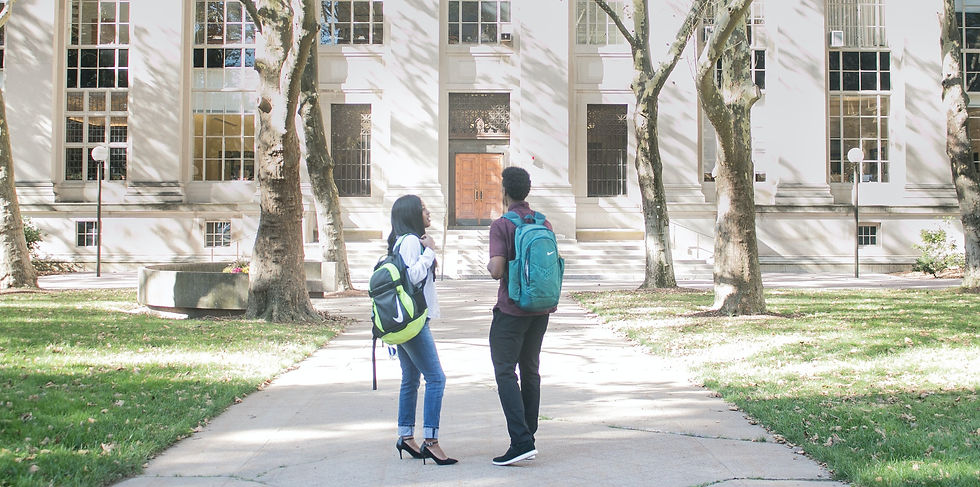Exploring the Latest Shifts in College Admissions: What's New for the New Year?
- robmoderelli
- Jan 3, 2024
- 2 min read
Updated: Feb 13, 2024

The early read on the current admissions season points to another year of increasing difficulty. While it isn’t a complete surprise that schools like Yale, Brown, Dartmouth, Williams, Duke and UVA have reported record applications and selectivity, the breadth of increased competition is surprising to some families with schools like The University of Tennessee, Santa Clara and Fairfield University also reporting record applications. Early Common App data has shown a 12% increase in students submitting through the Common Application, continuing a trend that now shows a 41% increase in applications since 2019-20. In brief, most competitive colleges are continuing to see increasing applicants and declining acceptance rates.
In addition to increasing levels of competition, the formal elimination of Affirmative Action has created additional confusion for many families with the LA Times discussing ‘hidden factors' and ‘standards that are more opaque than before’. For many families, the new admissions priorities and methodologies of many colleges have made admissions success more of a mystery. With more schools discussing the evaluation of applicant character and personality in their admissions process, concerns about applying to schools correctly have also increased applicant insecurity.
Finally, while legacy admissions have fared better than many would have suspected in the face of increasing criticism, the past few weeks have seen the introduction of bi-partisan legislation in congress that is focused on ending the practice. While it remains to be seen if the legislation is successful the reality is that both parties are focused on the issues and that legacy admissions is unpopular with the majority of the American population going into an election cycle. For students fortunate enough to have parents who attended their dream school, the advantage of legacy admissions seems more precarious than ever before.
While things can seem daunting, our survey work has shown a consistent increase in the number of top 50 U.S. News and World Report Universities and Colleges encouraging communication with their regional representatives in the admissions portion of their website. Regardless of if a school values 'demonstrated interest' we have found an increasing number of schools encouraging interaction with their regional representatives. Perhaps more interesting, we have also found that schools that have not traditionally highlighted and encouraged communication with school representatives doing so at an increasing rate when they update their websites.
When speaking with colleges, their concern about yield rates has them increasingly focused on applicants who seem to know their school better and are therefore more likely to attend (and remain). It is also important to note that a desire to report high yield rates exists at all colleges, including the most elite.
Our advice to families in an increasingly complex and competitive environment is to start the process earlier and to make sure to introduce yourself to your regional representative. Make the effort to know your target schools well enough to have thoughtful questions and make sure you get them answered. Regardless of the changes in college admissions, knowledgable applicants are advantaged.




Comments